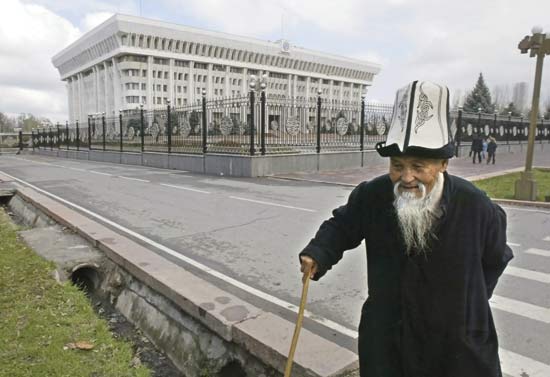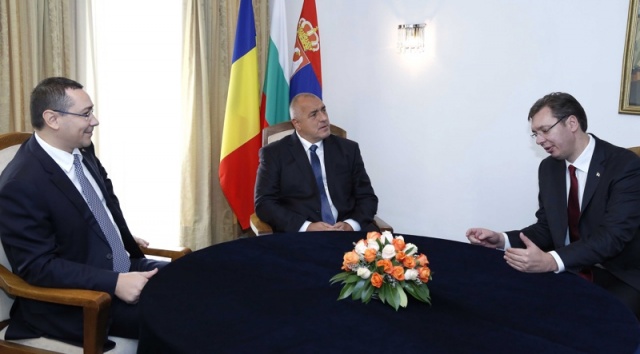Chicago Tribune, 21 August 2016
If Turkey, a member of the North Atlantic Treaty Organization, becomes excessively close to Russia, it would affect the security order led by the United States and Europe. The current situation is serious.
Turkish President Recep Tayyip Erdogan has held talks in Russia with Russian President Vladimir Putin, in which they agreed to mend the bilateral relations strained after the shooting down of a Russian military jet by Turkey in November.
Stating that Erdogan apologized for the downing of the plane in June, Russia is set to gradually lift economic sanctions on Turkey, including restrictions on sightseeing trips to the country and an import ban on Turkish livestock and agricultural products. During his latest visit to Russia, Erdogan even described Putin as his "dear friend."
The easing of tensions between the two nations can be a positive move conducive to preventing the regional situation from becoming complicated. What is worrying is that the rapid formation of a closer relationship between the two countries noticeably points to their ulterior motive of restraining the United States and European nations.
Erdogan escalated a purge of opponents after an abortive coup took place in July. The president has demanded Washington extradite a religious leader living in the United States whom Erdogan regards as the mastermind of the coup attempt. He is also considering reinstating the death penalty, a move the European Union opposes.
Erdogan's efforts to forge a highly amicable relationship with Russia without listening to U.S. and European criticism directed at him may indicate his determination to adhere to an iron-fisted regime, even by abandoning his country's long-cherished aim of gaining accession to the EU.
Turkey has also hinted at suspending a measure to accept Syrian refugees remaining in Greece. If Turkey's accord reached with the EU in March is scrapped, there would inevitably be a renewed rise in the number of refugees who are smuggled into European countries.
It is important for Turkey and the EU to maintain their dialogue so common ground can be found in their positions, a task necessary to steadily implement the agreement.
Russia has been at odds with the United States and European nations over the Ukraine situation and other issues. Russia's acceptance of Turkey's calls for improving their ties at this juncture may signify an attempt to shake NATO and take the initiative in dealing with the Syrian situation.
Russia joins Iran in supporting the government of Syrian President Bashar Assad. In mid-August, Russian forces for the first time used an air base in Iran to conduct air strikes in Syria.
Given that Turkey, as a member of the U.S. and European camp, is supporting Syria's antigovernment forces, the mending of ties between Moscow and Ankara seems to have been intended to keep the Assad administration in place by drawing Turkey closer to the Russian side.
The U.S. military is conducting air strikes on the Islamic State of Iraq and the Levant militant group in Syria using an air base in Turkey from which to send planes. If Turkey continues to cozy up to Russia, it would adversely affect the U.S. operations. That could also hinder peace talks over Syria.
U.S. Vice President Joe Biden will soon visit Turkey. His visit must serve as an opportunity to find out about Erdogan's true motives while also rebuilding relations between their nations.
No comments yet.
-
 STUDY HIGHLIGHTS CRUCIAL ETHNIC MAJORITY-MINORITY DIVIDE IN KYRGYZSTAN
Asia - Pacific
22.08.2016
STUDY HIGHLIGHTS CRUCIAL ETHNIC MAJORITY-MINORITY DIVIDE IN KYRGYZSTAN
Asia - Pacific
22.08.2016
- HIKMET HAJIYEV: WE CALL ON WORLD YOUTHS NOT TO SUCCUMB TO LIE CHALLENGES OF ARMENIANS ON NAGORNO KARABAKH The Caucasus and Turkish-Armenian Relations 22.08.2016
-
 BULGARIA CONFIRMS SUPPORT FOR SERBIA’S BID TO JOIN THE EU
The Balkans
22.08.2016
BULGARIA CONFIRMS SUPPORT FOR SERBIA’S BID TO JOIN THE EU
The Balkans
22.08.2016
- EU'S JUNCKER SAYS TURKEY MUST MEET CONDITIONS FOR VISA-FREE TRAVEL Europe - EU 22.08.2016
- BAD ROADS BLAMED FOR MACEDONIA-KOSOVO TRADE DECREASE The Balkans 22.08.2016
-
25.01.2016
THE ARMENIAN QUESTION - BASIC KNOWLEDGE AND DOCUMENTATION -
12.06.2024
THE TRUTH WILL OUT -
27.03.2023
RADİKAL ERMENİ UNSURLARCA GERÇEKLEŞTİRİLEN MEZALİMLER VE VANDALİZM -
17.03.2023
PATRIOTISM PERVERTED -
23.02.2023
MEN ARE LIKE THAT -
03.02.2023
BAKÜ-TİFLİS-CEYHAN BORU HATTININ YAŞANAN TARİHİ -
16.12.2022
INTERNATIONAL SCHOLARS ON THE EVENTS OF 1915 -
07.12.2022
FAKE PHOTOS AND THE ARMENIAN PROPAGANDA -
07.12.2022
ERMENİ PROPAGANDASI VE SAHTE RESİMLER -
01.01.2022
A Letter From Japan - Strategically Mum: The Silence of the Armenians -
01.01.2022
Japonya'dan Bir Mektup - Stratejik Suskunluk: Ermenilerin Sessizliği -
03.06.2020
Anastas Mikoyan: Confessions of an Armenian Bolshevik -
08.04.2020
Sovyet Sonrası Ukrayna’da Devlet, Toplum ve Siyaset - Değişen Dinamikler, Dönüşen Kimlikler -
12.06.2018
Ermeni Sorunuyla İlgili İngiliz Belgeleri (1912-1923) - British Documents on Armenian Question (1912-1923) -
02.12.2016
Turkish-Russian Academics: A Historical Study on the Caucasus -
01.07.2016
Gürcistan'daki Müslüman Topluluklar: Azınlık Hakları, Kimlik, Siyaset -
10.03.2016
Armenian Diaspora: Diaspora, State and the Imagination of the Republic of Armenia -
24.01.2016
ERMENİ SORUNU - TEMEL BİLGİ VE BELGELER (2. BASKI)
-
AVİM Conference Hall 24.01.2023
CONFERENCE TITLED “HUNGARY’S PERSPECTIVES ON THE TURKIC WORLD"









